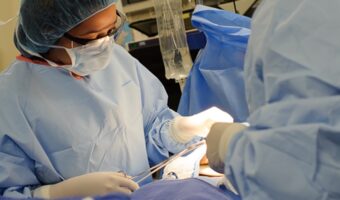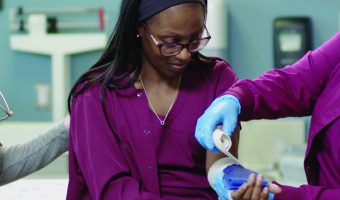Program Overview
You will learn how to use basic and specialized medical laboratory technology instrumentation that prepares graduates to provide accurate and reliable results that helps save lives. NEIT’s medical lab technician education empowers students with the experience required to serve the health care community as a medical laboratory technician. We believe in NEIT’s hands-on learning approach that emphasizes excellence in education. The curriculum combines academic courses with clinical experience in hematology, coagulation, microbiology, immunohematology, chemistry, parasitology, immunology, and urinalysis.
Read More The Associate in Science in Medical Lab Technician prepares students as entry-level medical lab technicians. Students undergo this training to make a career in health care. We give laboratory science education that empowers students with the experience required to serve the health care community as a medical lab technician. We believe in the schools of thought that emphasize excellence in education. Whether it’s working in a medical lab, becoming a medical laboratory technician, or working as a technician associate — you’ll gain on-site experience that other medical lab technician schools don’t offer. Medical laboratory technicians use basic and specialized laboratory skills, computer technology, and knowledge of the human body to provide accurate and precise laboratory results. Doctors and physicians require this information to diagnose, treat and monitor diseases. Whether it’s working in a hospital lab or physician’s office lab — you will gain experience using instrumentation that other medical lab technician programs don’t offer. You will be performing important tests that provide essential information to the physician. Medical laboratory technicians must also demonstrate ethical and moral attitudes and principles. They must maintain an attitude of respect for the patient and the confidentiality of the patient’s record and diagnoses at all times. The MLT curriculum offers courses in basic sciences (biology, chemistry, anatomy, and physiology), mathematics, social sciences, and the humanities. It provides both didactic (including student laboratories) and clinical experience courses in hematology, coagulation, microbiology, immunohematology, chemistry, parasitology, immunology, and urinalysis. As you can see, this is a comprehensive education that will equip graduates with the necessary skills to become a medical lab technician. Upon completion of the program, students are eligible to sit for a national certification examination. The certification of choice for most employers is through the American Society of Clinical Pathology (ASCP) Board of Certification. Completion of the MLT Program is not contingent upon the passage of any external certification examination.Full Description
Potential Career Opportunities
Studying to become a medical laboratory technician can open you up to a world of possibilities. Careers you can pursue after completing a lab tech program include:
Medical Laboratory Technician
Biological Technician
Clinical Laboratory Technician
FAQ
-
What degree does a medical lab technician need?
Graduates of the MLT will have no problem finding jobs as medical lab technicians as there are many open positions in the nation due to the aging workforce and the demands of healthcare. This program provides the education and skills required for the diagnostic testing of blood and other body fluids following the appropriate safety standards. Students are also exposed to the instrumentation and equipment that is used in the clinical laboratory.
-
Is a medical lab tech a good career?
Current statistics on potential salaries and job outlook are listed on the Bureau of Labor Statistics (BLS) website. Medical lab technicians have the ability to work alongside other medical professionals to ensure complete patient care.
-
What is the difference between a medical lab technician and a medical lab technologist?
A medical laboratory technician needs an associate degree to enter the field. These professionals are typically responsible for acquiring, preparing, and analyzing samples. In addition to performing laboratory procedures they are also responsible for maintenance on instruments.
Medical lab technicians work alongside other medical professionals to ensure comprehensive patient care.




